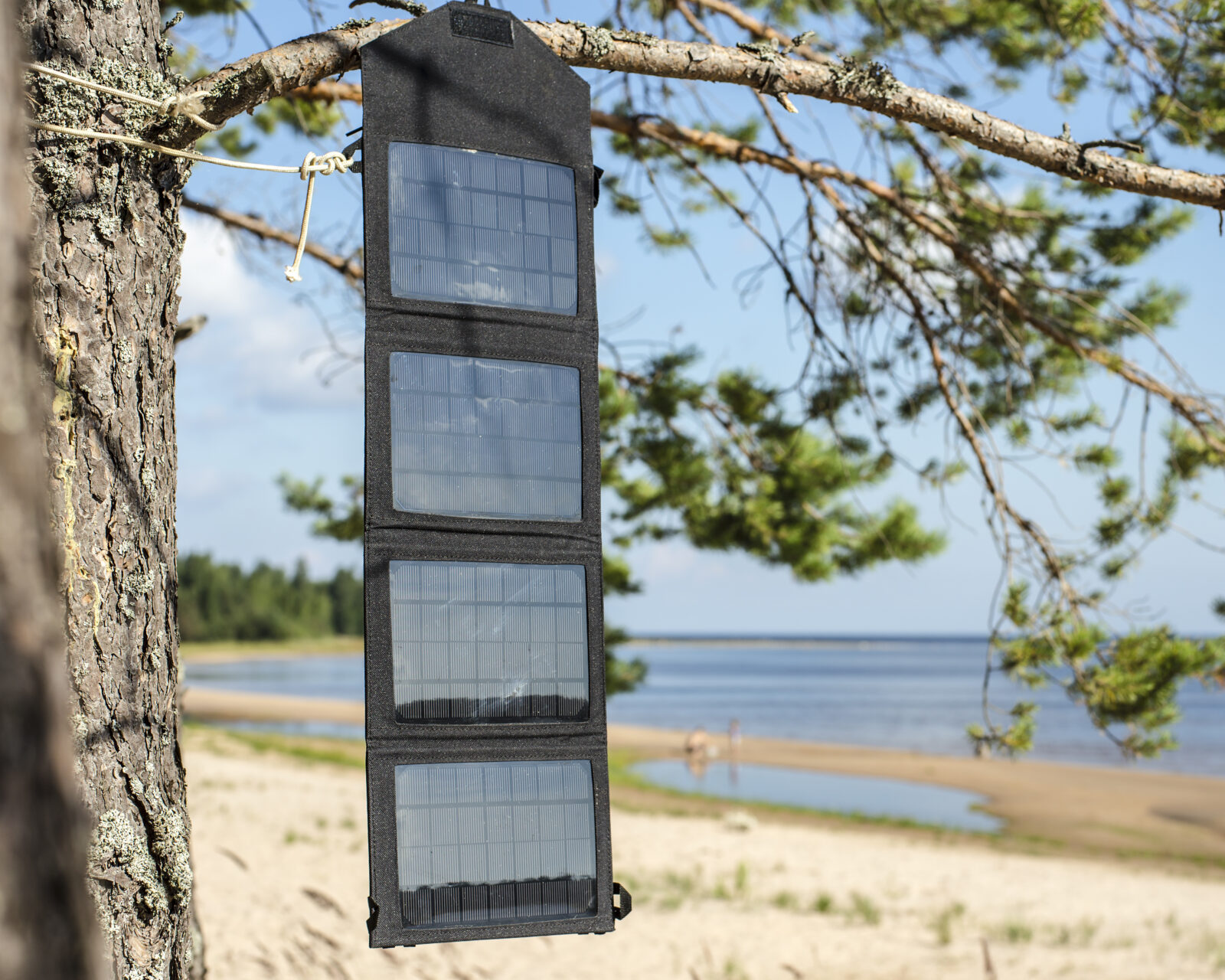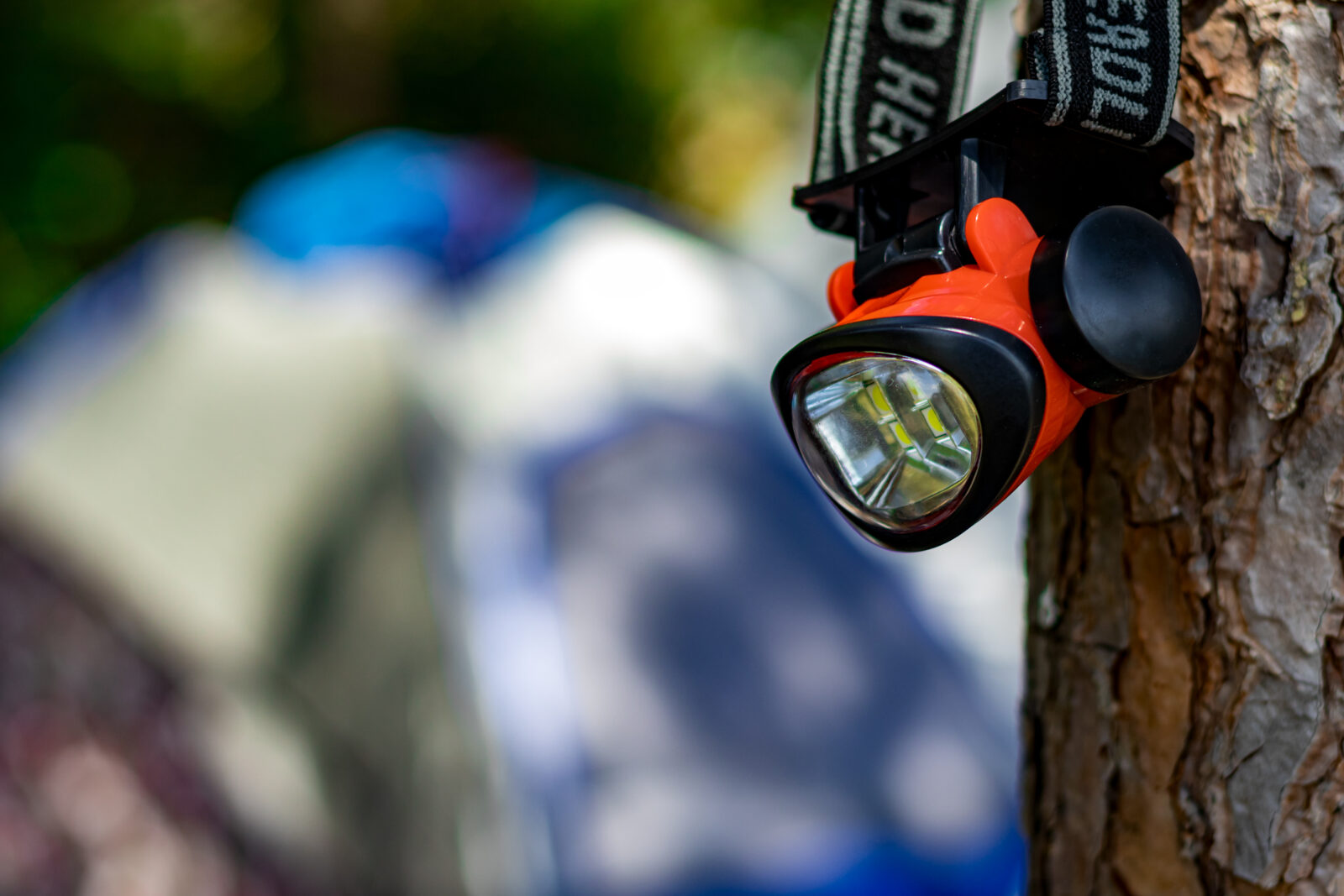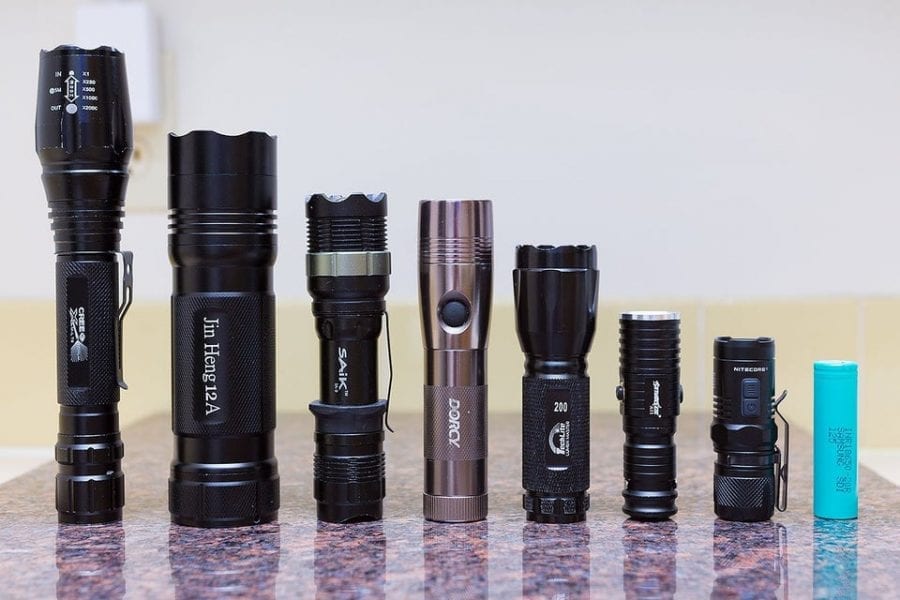A portable generator is an incredibly useful piece of gear while you’re camping. Thanks to their ability to power everything from A/C units to smartphones, generators help ensure that you can camp comfortably in the great outdoors.
However, generators are noisy, and all that noise can really detract from your outdoor experience. So, finding ways to quiet your generator while in camp can make a big difference in your adventures.
We know how noisy generators can get while you camp, so we’ve created this list of tips and tricks to help you out. In this article, we’ll discuss some great ways to quiet down your camping generator so you can make the most of your time outside.
1. Create a sound-absorbing generator box

If you want a simple one-stop-shop solution to your noisy generator needs, creating a sound-absorbing generator box might be what you’re looking for. In fact, a quality DIY generator quiet box can turn the noisiest of generators into a nearly silent energy-producing machine.
There are many different ways to create a sound-absorbing box. The idea is that you’ll create a box out of wood that can completely enclose your generator. Then, you’ll layer sheets of sound-proofing material inside the box to absorb all the noise coming out of your machine.
It is worth noting, however, that you will need to create a few holes in your quiet box to allow for airflow to your generator. All generators that run on gasoline or diesel require oxygen for combustion, so cutting off this airflow completely will prevent your generator from functioning properly.
A large hole on one side for your generator output extension cord will normally do the trick. But you may have to adjust your design a few times until everything works properly.
Do keep in mind, however, that having a large hole in your quiet box will expose your generator to the elements. In these situations, you may also want to create a shelter for your generator using a camp tarp.
2. Place your generator on a soft surface
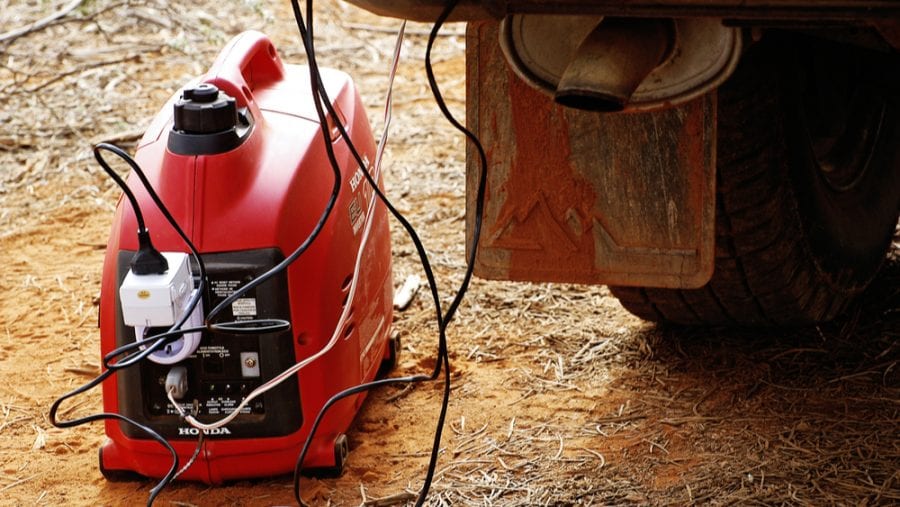
Regardless of whether or not you build a quiet box for your generator, placing your generator on a soft surface can help absorb a lot of the noise.
While many of us instinctively place our generators on asphalt, metal, or wood surfaces while we camp, placing them on soft surfaces, like dirt can make a big difference. That’s because metal, asphalt, and wood can all amplify noise while dirt will naturally absorb some of it.
So, next time you arrive at your campsite in a scenic location, like Shenandoah National Park, take a moment to think about where you want to place your generator. Picking a spot in the dirt, rather than on the pavement next to your car, could make a big difference.
3. Use rubber feet on your generator
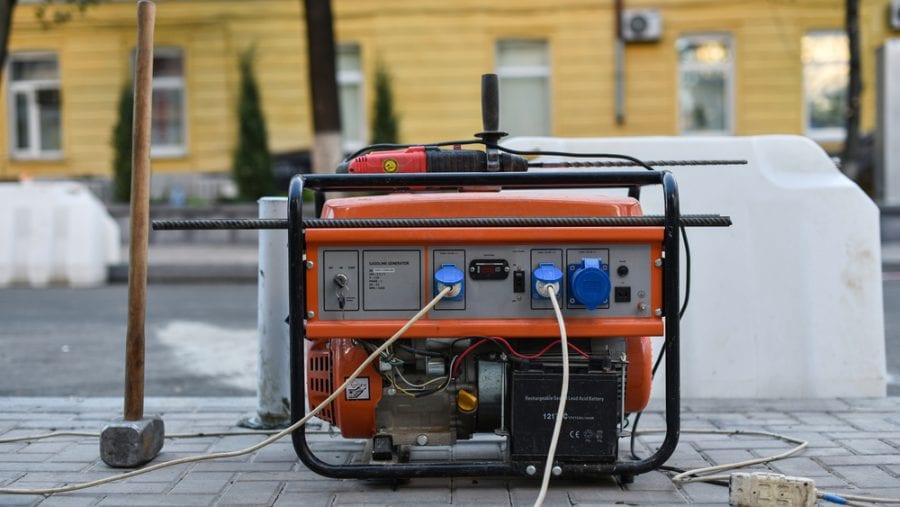
If placing your generator on asphalt or another hard surface is unavoidable, using rubber feet could help reduce some of the noise.
That’s because generators tend to vibrate as they produce energy. All these vibrations against hard surfaces, like asphalt, usually amplify the amount of noise that the generator produces.
So creating some DIY rubber feet for your generator can help reduce some of its noise output.
Since every generator is different, it’s usually best to buy a small section of rubber matting at a hardware store. Then, you can cut the rubber mat down to size and create small rubber feet to use on your generator for your next car camping trip to stunning Yosemite National Park.
4. Position the exhaust pipe away from you
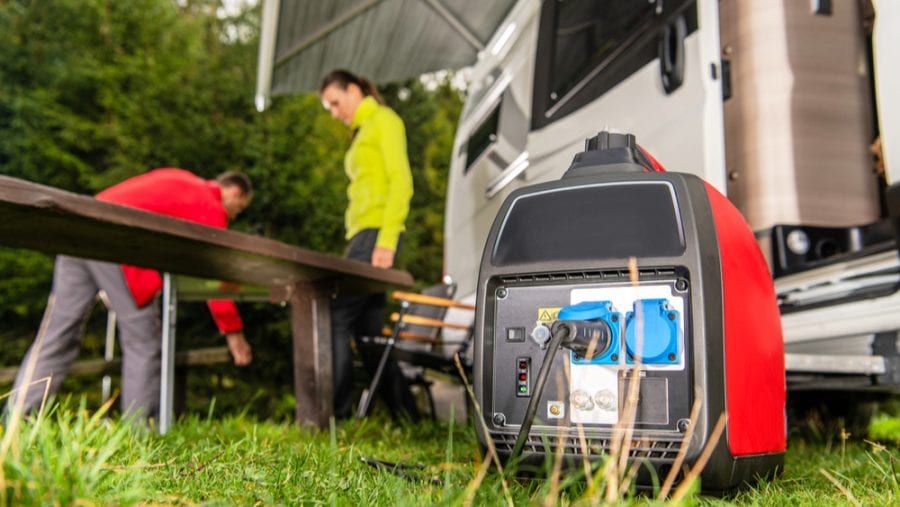
The exhaust pipe is one of the noisiest parts of any generator. So, if you want a quick and easy way to quiet your generator for camping, simply position the exhaust pipe away from you and your relaxation area.
However, in a busy campground, like what you’d find at Zion National Park, it may be difficult to position your exhaust pipe so that it doesn’t face directly into a neighboring campsite.
In these situations, it’s often best to position your exhaust pipe so that it faces into a sound-absorbing environment, like a forest, to ensure that everyone has an enjoyable camping experience.
5. Deflect the sound of your generator

If creating a sound-proof box isn’t feasible for you, a smaller sound-deflecting barrier might do the trick.
Sound-deflecting barriers are fairly straightforward to build. You’ll need a sound-deflecting material, like medium-density fiberboard (MDX), and a way to prop up this fiberboard so it forms a barrier between you and your generator.
In a pinch, you could simply prop up the fiberboard using a large rock. But, a better long-term solution would be to create a small stand out of wood to hold the fiberboard upright.
Regardless of how you create a sound-deflector, however, using one can be a nice solution to your noisy generator conundrum.
6. Try the water bucket hack

This might sound odd, but using water can be a useful way to quiet your generator while in camp. In fact, water is one of the best sound deflectors out there, so harnessing its power can really improve your camping experience.
To do so, you’ll need a standard hose pipe and a 5-gallon bucket that’s filled with water. You’ll then place one end of the hose in the water and connect the other to the exhaust of the generator.
When the generator is on, the exhaust will then filter through the water, which will dampen much of the sound. It’s as easy as that!
7. Move your generator away from your camping area

Since noise disperses with distance, simply moving your generator further away from your campsite can provide you with a quieter camping experience.
Of course, this technique isn’t always possible at busy campsites, like what you’d find in Acadia National Park. However, if you have space, consider placing your generator as far from your campsite as possible.
Even just a few extra feet can make a difference.
8. Ensure your generator muffler is functioning
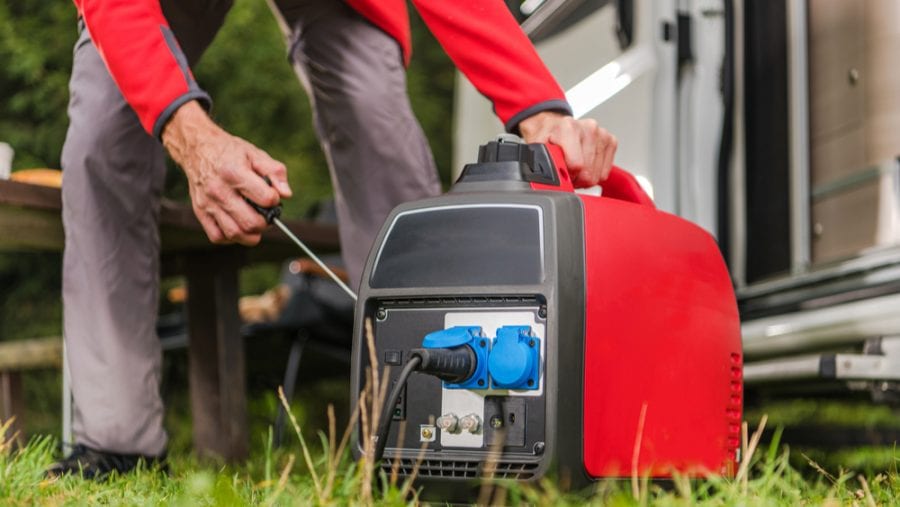
As their name suggests, the primary job of a muffler is to muffle the sound coming off of your generator. However, a malfunctioning muffler isn’t going to do much to quiet your generator while in camp.
So, if you notice that your generator is particularly noisy, it might be worth replacing the muffler. Some mufflers are also compatible with silencers to reduce your generator’s sound output.
But, it’s important to check with your generator manufacturer directly before swapping out parts as doing so can affect the performance of your generator while in camp.
9. Consider your energy output needs
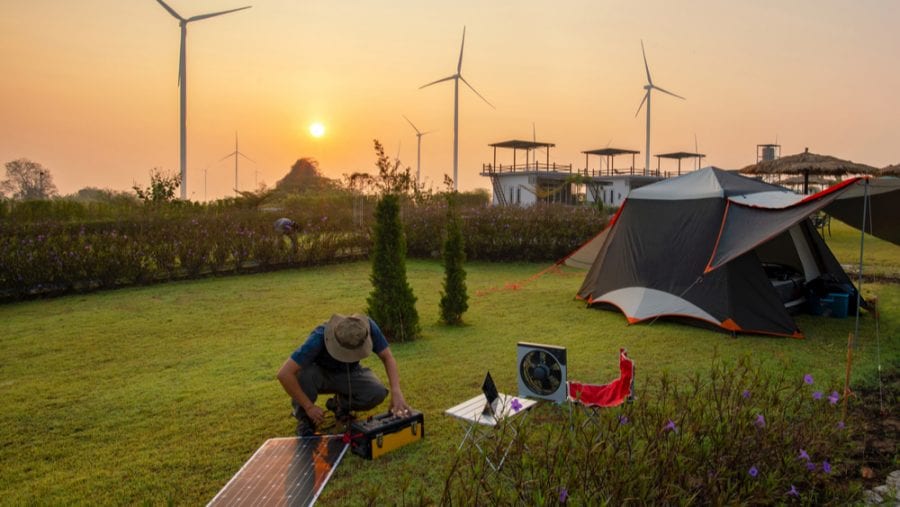
As you can imagine, larger generators that have the capacity to create more energy are more likely to create lots of noise. So, selecting a generator that’s appropriately sized for your energy consumption needs can help reduce the noise levels in your campsite.
That being said, if you already own a generator that you’re happy with, you may not want to invest in a smaller one. In these situations, consider reducing the power output of your generator so that it doesn’t exceed your energy consumption needs.
Alternatively, if you supplement your generator with alternative energy sources such as solar panels and portable battery packs when charging smaller electronic devices, you may find that you don’t need to produce as much energy with your generator. This can reduce the noise coming from your generator and save you money in fuel costs.
What could be better?
10. Go electric
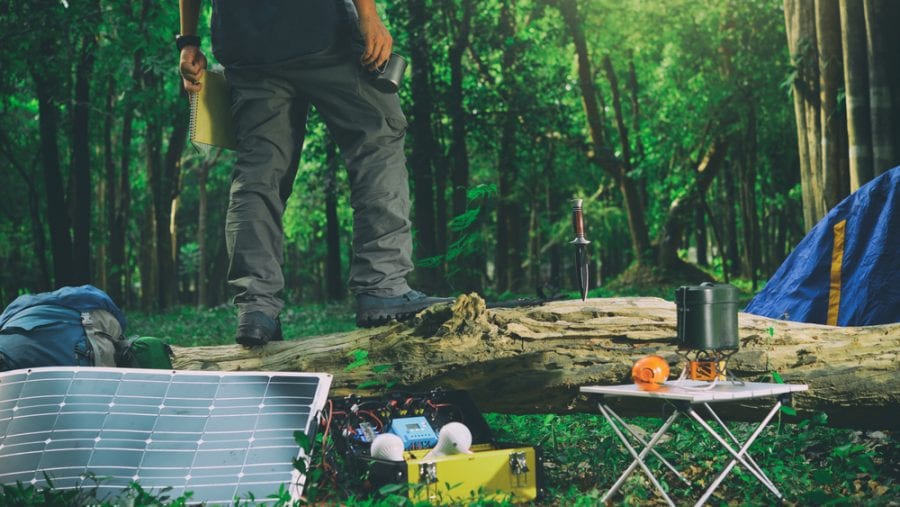
Finally, if you really want a quiet camping experience, opting for an electric generator might be your best bet.
In reality, most methods for quieting a gas or diesel generator will only reduce the generator’s total noise output, not eliminate the noise completely.
So, if you want a blissful, noise-free camping experience, an electric model is the way to go.
Gaby Pilson
Gaby is a professional mountain guide with a master’s degree in outdoor education. She works primarily in the polar regions as an expedition guide, though she can be found hiking, climbing, skiing, sailing, or paddling in some of the world’s most amazing places when not at work.
